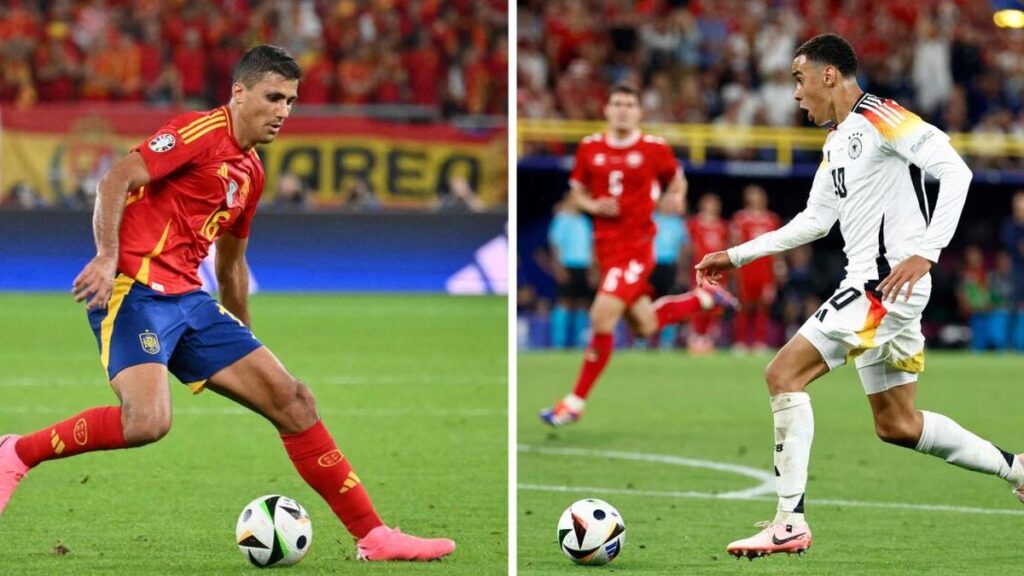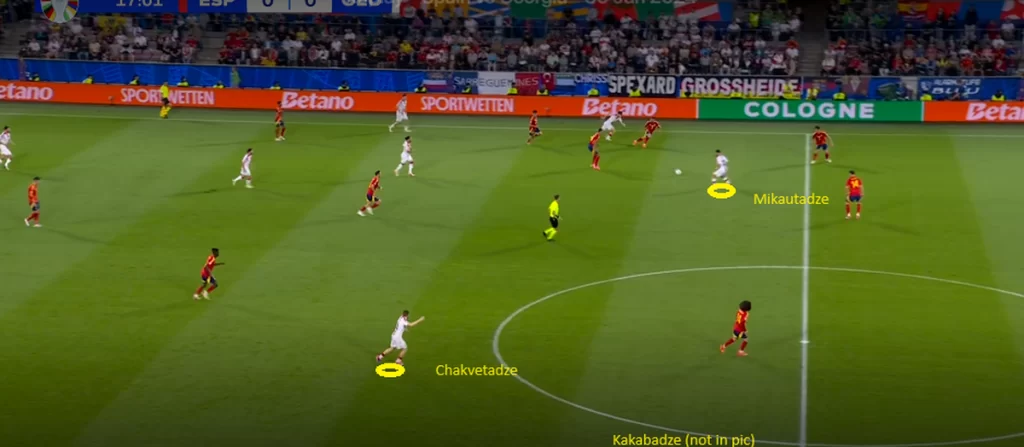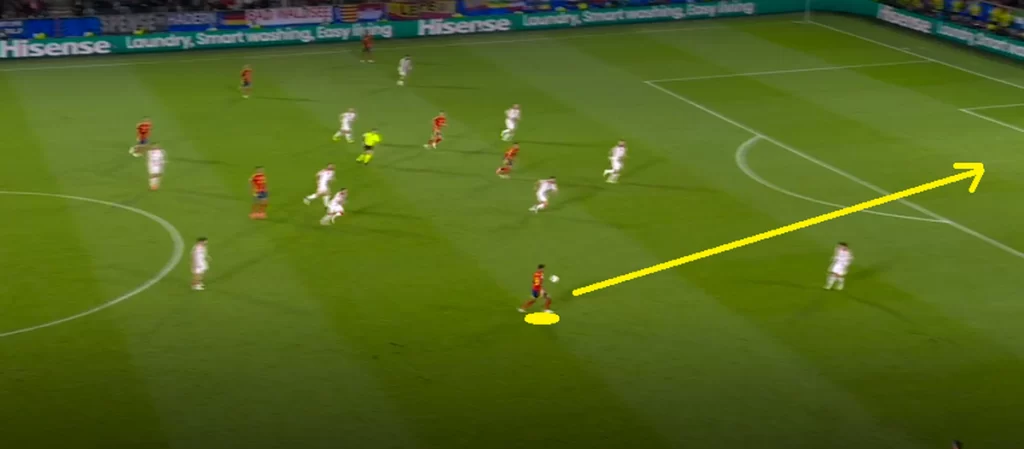The upcoming clash between Germany and Spain in the Euro 2024 quarterfinal promises a showdown of European football powerhouses at the Stuttgart Arena. With both teams undefeated thus far in the tournament, their encounter in the quarterfinals marks a pivotal moment, determining the frontrunner for the coveted European Championship title.

Germany enters the match boasting a potent attack led by Jamal Musiala and supported by the dynamic Florian Wirtz or Leroy Sane. Musiala, in particular, has showcased his prowess with 29 dribble attempts, highlighting his role as a direct and penetrative force in Germany’s offensive strategy. The German side excels in swift transitions and utilizes its fullbacks, notably Joshua Kimmich and either David Raum or Maximilian Mittelstadt, as key components in advancing play into the opposition’s territory. This strategy relies heavily on their ability to stretch the field and deliver crucial crosses and cutbacks into the box, where attackers like Kai Havertz thrive with their aerial prowess.

On the other hand, Spain enters the quarterfinals with a near-flawless record, underscored by their control-oriented play style. The Spanish midfield trio of Rodri, Pedri, and Fabian Ruiz epitomizes precision and composure, dictating the tempo of the game and orchestrating intricate passing sequences that destabilize opposing defenses. Spain’s strategy hinges on exploiting the wide areas through their dynamic wingers, Nico Williams Jr. and Lamine Yamal, who excel with their dribbling ability and adeptness in delivering crosses. This approach not only aims to create scoring opportunities but also to draw out Germany’s fullbacks, forcing them to defend deeper and limiting their offensive contributions.

Both teams heavily rely on crossing as a primary offensive tactic, with Germany averaging 22 crosses per game compared to Spain’s 20.5. Spain’s wingers, Williams Jr. and Yamal, have been pivotal in this aspect, consistently delivering dangerous balls into the box. Conversely, Germany looks to its fullbacks for offensive width, particularly Kimmich, Mittelstadt, and Raum, who supplement their attacking prowess with precise deliveries and occasional assists.

In terms of individual impact, players like Havertz for Germany and Alvaro Morata for Spain will play critical roles as central strikers, exploiting spaces created by their respective teams’ strategic plays. The bench strength also looms large, with Germany able to call upon the likes of Niclas Fullkrug, known for his effectiveness in previous encounters against Spain, to provide a direct attacking threat.

The midfield battle will be pivotal, with Germany’s Toni Kroos and Spain’s Rodrigo Hernandez (Rodri) expected to control the rhythm and flow of the game through their adept passing and positional awareness. Spain’s midfield trident of Rodri, Pedri, and Ruiz offers a blend of defensive solidity and creative ingenuity, aiming to dominate possession and dictate the pace of play.

As these European giants collide in what has been dubbed the ‘final before the final,’ their contrasting styles and tactical nuances promise an exhilarating spectacle. The outcome will likely hinge on which team can assert dominance in midfield, thwarting the opposition’s game plan while capitalizing on strategic opportunities. With both sides eyeing the European Championship, the quarterfinal encounter between Germany and Spain is set to be a defining moment in the tournament’s narrative.
Credit: sportstar.thehindu.com



